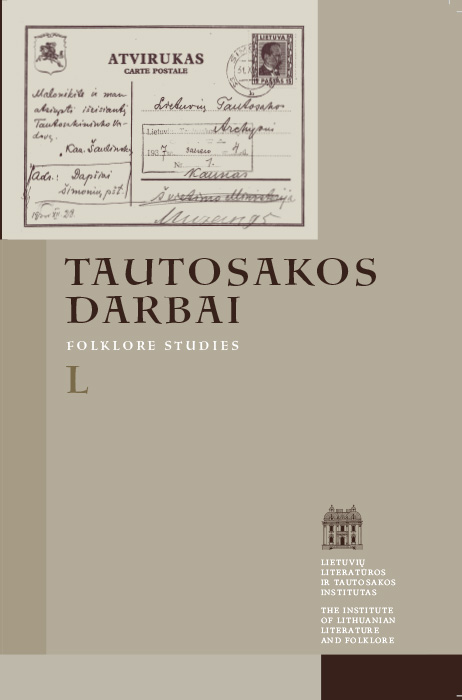An Oath or a Sacrifice?
Abstract
Quite a number of researchers have already shown interest in the actions described by the Dubno Chronicle as allegedly performed by the Lithuanian duke Kęstutis and his men in 1351. The author of this article presents samples of oaths supplied by the ancient writings and verbal tradition, comparing the Lithuanians’ actions with the rituals of fraternization and sacrifice. She concludes that Lithuanians, whether consciously or not, had chosen actions that were considered by Hungarians as reinforcement of the written contract and interpreted as obligation to observe the oath. The actions performed by the Lithuanians and their words translated into Latin contain evidence of the sacrifice ritual. In the Dubno Chronicle, however, the completion of the sacrifice ritual is not described, since in the presence of Hungarians the Lithuanians could not consign their sacrifice to the deity, i.e. eating the bull’s flesh or burning its part. The author of the article maintains that Lithuanians had purposefully uttered the word “god”, yet avoided mentioning the name of the deity. Most probably, they had Perkūnas in mind, since this word is frequently encountered in Lithuanian folklore and spoken language. Other researchers have listed many words that had been recorded by foreigners and considered to be names of the Lithuanian gods, but as a rule they lack arguments to prove that these words have indeed been theonyms.
Downloads
Most read articles by the same author(s)
- Bronislava Kerbelytė, Rimantas Balsys, “There Are So Many White Roads that One Would Like to Walk!..” Folklorist Professor Bronislava Kerbelytė Is Interviewed by Her Student, Professor Rimantas Balsys , Tautosakos darbai: Vol. 49 (2015)
- Bronislava Kerbelytė, Translations of the Sumerian and Akkadian Texts , Tautosakos darbai: Vol. 48 (2014)
